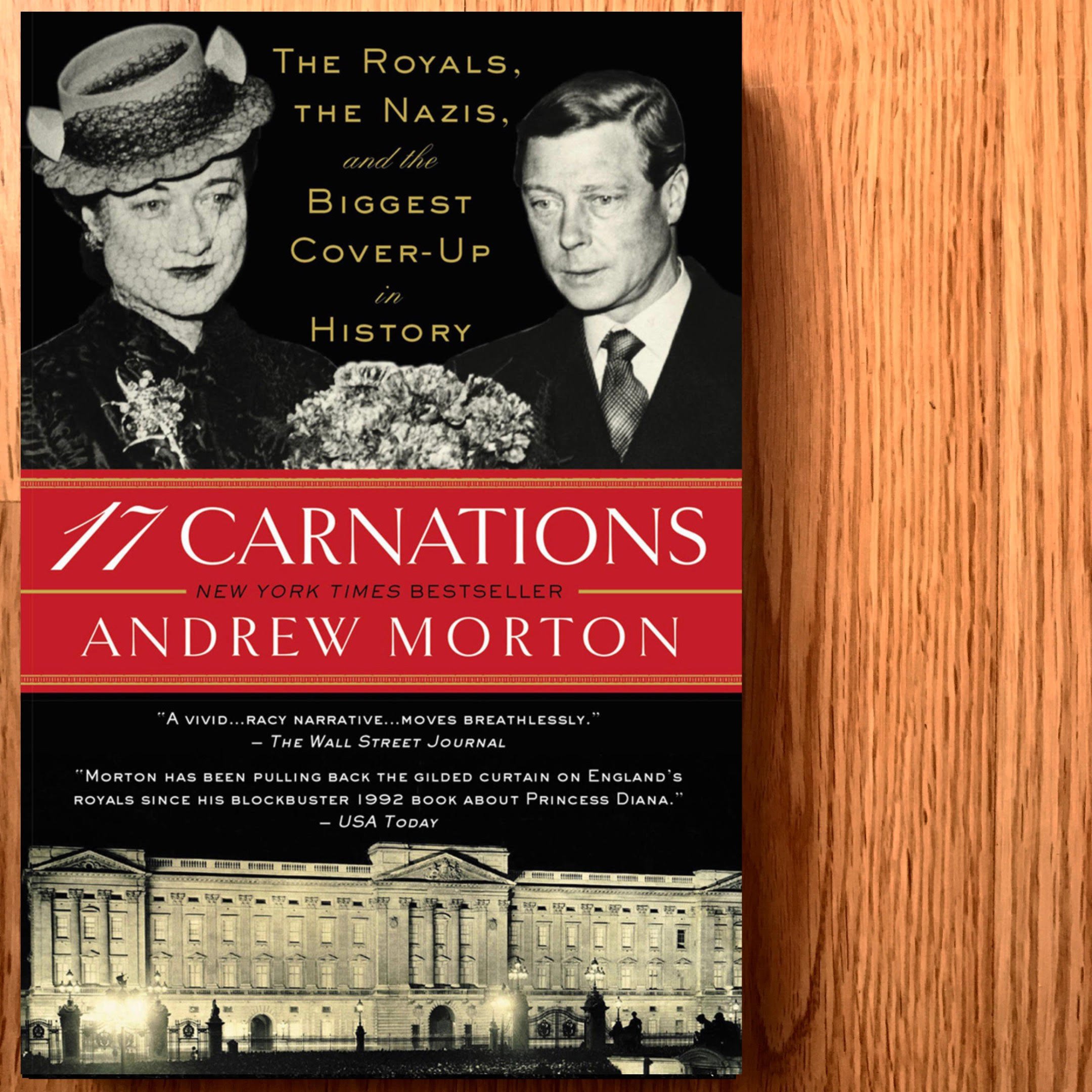By Sara Hailstone
Famed celebrity biographer, Andrew Morton, meticulously takes on the wartime life events of Edward VIII and broaches the politically concealed controversies of the royal’s interactions with Hitler and the subsequent cover-up of this uncomfortable chapter of British Royal history with Churchill, the monarchy, and Eisenhower afterwards. Laden with psychoanalytic and historiographical methodology of deconstruction, Morton digs through the topographical workings of a man born into royalty not fully embracing the bloodline and a figure associated with a dangerous political web of power dynamics, anti-Semitism, and defiance. Morton laid the foundation for groundbreaking biographies by revealing the secret world of Princess Diana, expectations of liberating narrative with 17 Carnations, in my opinion, does not illuminate a layer of storyline as ‘the biggest cover-up in history’ or seem fully shocking, or surprising in all facets of a leader and their association with Nazism.
Morton lays the groundwork in understanding how a member of the royal family could conceivably have been roped in by Hitler’s schemes, but the slow-winded unravelling of discussion around ‘The Windsor File,’ and subsequent cover-up, seems folded carefully back into a narrative of control by the crown in keeping one of its members ‘in-check.’ European leaders viewed the Nazi State as modern, and Morton places Edward with his peers: “As for the so-called Jewish question, the prince was, like many of his class; instinctively anti-Semitic—Buckingham Palace did not employ Jews or Catholics in positions of any prominence in the Royal Household until well into Queen Elizabeth Il's reign.” Edward VIII was essentially ‘excommunicated’ to the Bahamas and stripped of his title. The duke’s polemic, as identified by Morton, was to reinstate himself and his scorned American wife, Mrs. Simpson, on the throne. In doing so, the negotiations with Hitler could be a power move.
The title of the text, 17 Carnations, is a reference to a rumour of the number of times Mrs. Simpson and a Nazi diplomat, Joachim von Ribbentrop, were thought to have been intimate. The story is merely gossip, which signifies to me the overall tone of the text as tabloid enmeshed with heavy chronology and historical detail. However, I would have liked to come away from the novel feeling confident about the contents of the cryptic Windsor File that was central in a top-down cover-up by Churchill and Eisenhower.
“The Windsor file exposed that man, his faults, his frailties, and his petty indulgences. He may have been blackballed from the club, but he was once a member of a very exclusive guild of kings and sovereigns without a throne.” Aligning stances like this with citations from the primary document would help transform the text from being a celebrity narrative. Despite the release of the Windsor File in 1957, the duke denied its contents. His story is neatly fitted into a narrative of control and the risk of an almost slip in history when a monarch collaborated with ‘the enemy.’ I do not think Edward VIII’s engagement with Hitler was the biggest cover-up in history. There are far more dangerous and orchestrated cover-ups left undetected, far higher-up organizations, political and economic bodies that likely worked with the Nazi State yet to be fully realized in current imagination. The Vatican, for one, would be a subject that would be ‘the biggest cover-up in history’ by working with Hitler and National Socialism.
Thank you to Grand Central Publishing and Andrew Morton for the complimentary copy in exchange for an honest review!

